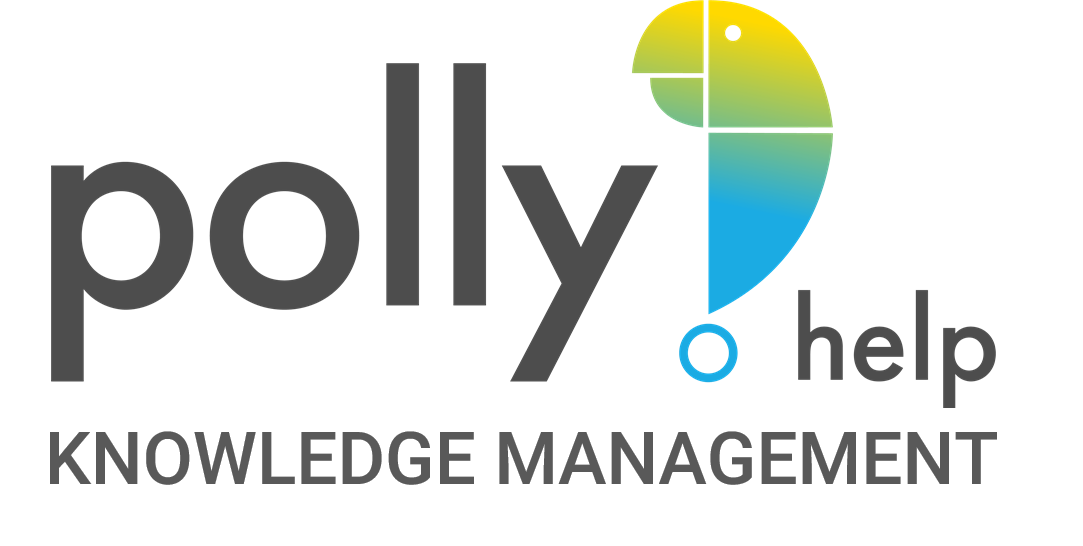In today’s competitive landscape, the mastery of knowledge management strategies has become a cornerstone of success for field service organizations striving for operational efficiency and heightened customer satisfaction. The integration of robust knowledge management systems is not a luxury but a necessity, empowering field service professionals with immediate access to critical information and best practices. By systematizing the troves of data and experience accumulated over time, service providers are geared to not only meet but exceed the fast-evolving expectations of their clientele.
Adopting such strategic frameworks transcends mere information storage; it fosters a culture where knowledge is a valued asset. It is a transformative approach that bridges the gap between field technicians and the wealth of knowledge that lies at the core of proficient service delivery. Consequently, companies that skillfully implement knowledge management are witnessing remarkable improvements in service quality and customer engagement, setting a new standard in the field service domain.
Key Takeaways
- Systematic knowledge management is vital for improving service quality and efficiency.
- Effective information sharing leads to better customer outcomes and satisfaction.
- Technicians with access to a centralized knowledge base can provide faster, more accurate service.
- Knowledge management is a critical lever for maintaining competitive advantage in the field service industry.
- Adapting to customer needs and changes in technology is facilitated by robust knowledge management practices.
Centralizing Field Service Data for Improved Customer Experience
In today’s competitive market, achieving excellence in customer service necessitates the strategic alignment of information and field operations. A customer’s interaction with a brand doesn’t happen in isolation; it’s a composite of experiences across various digital touchpoints. Consequently, field service operations are increasingly compelled to revolutionize their approach to data management. Centralizing field service data not only paves the way for superior customer service but also serves as the foundation for a coherent customer journey.
The Importance of a Central Knowledge Repository
A central repository acts as the backbone for efficient field service management, condensing myriad data forms into a single source of truth. Storing and managing information in one central location makes it accessible for service agents and technicians whenever required, empowering them to provide personalized and informed customer support. This unified approach mitigates the risk of inconsistent information, which often undermines the customer experience.
Overcoming the Challenge of Data Silos
Field service organizations frequently grapple with the pitfalls of data silos, where information resides in disconnected systems, hindering collaborative efforts and decision-making. Breaking down these silos and ensuring the seamless flow of information across all levels of service operations is critical. By leveraging a centralized data hub, insights gathered from various customer interactions are shared enterprise-wide, ensuring all team members are equipped with the knowledge needed to excel in their roles.
Enhancing Omni-channel Support with Centralized Access
Omni-channel support stands at the vanguard of cutting-edge customer service, requiring an intricate web of data and insights to function effectively. Centralizing data enhances the responsiveness and flexibility of support across all digital touchpoints, allowing service teams to deliver consistent and timely solutions. A comprehensive view of the customer enables tailored interactions and more dynamic service, making a significant impact on the overall customer experience.
| Feature | Benefits | Impact |
|---|---|---|
| Centralized Data Storage | Real-time access to updated information, Reduced search time for data retrieval | Faster resolution, Enhanced productivity |
| Unified Customer View | Insights into customer history and preferences | Improved personalization, Increased customer satisfaction |
| Collaboration Across Teams | Shared knowledge and best practices | Consistency in service delivery, Higher quality support |
| Data-Driven Decision Making | Analytics-driven insights from integrated data | Strategic improvements, Superior service design |
Merging the nuances of customer interactions into a centralized framework is more than a strategic move—it’s a transformational process that elevates service delivery, drives efficiency, and fosters an unrivaled customer-centric culture. The transition to a central repository is not merely an IT upgrade but a stepping stone to becoming a pioneering force in field service excellence.
Optimizing Service Efficiency with Knowledge Sharing
Within the rapidly evolving field service landscape, knowledge sharing emerges as a cornerstone for enhancing technician collaboration and driving productivity enhancement. Service organizations have witnessed a palpable shift towards a more collaborative, knowledge-driven system of operation. By implementing a structured approach to knowledge sharing, companies have reaped substantial benefits in improving service efficiency. Through the formation of interactive knowledge bases, rich with media and detailed schematics, field service technicians can swiftly access pivotal information, which curtails the occurrence of costly revisit scenarios.
Considering the essence of knowledge sharing in field service management, the following points delineate how its effective utilization skyrockets organizational efficiency:
- Immediate Access to Information: Technicians gain the capability to quickly reference service manuals and troubleshooting guides, minimizing downtime and customer inconvenience.
- Enhanced On-the-Job Training: Interactive tools like augmented reality and video tutorials support on-the-spot learning, reinforcing skills without disrupting workflow.
- Streamlined Communication: Real-time knowledge exchange between technicians fosters a collaborative environment where expertise is freely shared, leading to innovative problem-solving approaches.
- Feedback Loop for Continual Improvement: Insights and experiences from field service encounters feed back into the knowledge repository, cultivating an ever-evolving and improving service strategy.
These practices underline a transformative pathway where leveraging collected wisdom translates directly into amplified service capabilities. Robust knowledge sharing platforms not only empower field technicians but also forge a collaborative culture that underpins the collective success of service teams. Efforts to refine these platforms and integrate cutting-edge tools are critical in maintaining competitive advantage and addressing the complex dynamics of customer expectations in the digital age.
The Role of Structured Knowledge in Field Service Agility
Field service organizations are rapidly recognizing that structured knowledge—the systematic organization and processing of explicit data—is fundamental to fostering an environment of swift, informed decision-making. By distilling complex information into organized, accessible formats, field service professionals can tap into valuable insights without delay. This capability is particularly beneficial in dynamic environments where conditions can rapidly evolve and require immediate responses.
Codifying Tacit and Explicit Knowledge
To maintain a competitive edge, companies must not only manage the readily available explicit data but also capture the nuances of tacit knowledge. This tacit knowledge, comprising unspoken intuitive insights and hands-on experiences, is a goldmine for field service agility. Documenting this often elusive form of knowledge allows for consistent and efficient knowledge transfer among team members, regardless of individual turnover.
Importance of Knowledge Access in Rapid Decision Making
As conditions on the field change, the need for rapid decision-making becomes paramount. Access to a structured knowledge base permits service professionals to swiftly navigate complex scenarios with confidence. With the right information at their fingertips, service technicians can make informed decisions quickly, enhancing customer satisfaction and operational resilience.
Strategies to Document Implicit Information
Field service professionals utilize a variety of strategies to document and convey tacit knowledge—including detailed onboarding documents and ongoing mentoring programs. These efforts ensure that implicit knowledge is captured and shared within the organization. Leveraging software tools that can record and transcribe meeting insights further solidifies the exchange and preservation of crucial experiential knowledge.
| Documentation Strategy | Knowledge Type | Benefits |
|---|---|---|
| Structured Onboarding Documents | Explicit and Tacit Knowledge | Preserves institutional memory and shortens learning curves for new hires |
| Mentoring Programs | Tacit Knowledge | Facilitates personal knowledge transfer and continuity of service excellence |
| Software Tools for Insights Capture | Tacit and Implicit Knowledge | Creates a living knowledge base that evolves with the company |
Minimizing the Impact of Turnover with Knowledge Transfer
With businesses facing inevitable challenges such as employee turnover, the importance of knowledge transfer comes to the fore. It’s a process that not only ensures expertise retention but also aids in learning curve reduction for new recruits. Employee transition can impart a significant loss of vital operational knowledge; however, strategic knowledge management can cushion this impact, preserving the invaluable expertise of outgoing staff.
A proficient knowledge transfer strategy comprises several key approaches designed to mitigate the risk of knowledge loss and to streamline the integration of new employees. Below are critical elements ensuring efficient preservation and dissemination of specialist knowledge:
- Comprehensive Knowledge Repositories: A well-maintained and structured knowledge base that captures procedural know-how, troubleshooting guides, and solutions to past issues.
- Methodical Documentation: Capturing experiential learning and tacit knowledge through documentation, which translates into quick reference materials for successors.
- Mentorship Programs: Pairing seasoned employees with newcomers for real-time, on-the-job training and sharing of insights, enhancing personal development and engagement.
- Technology Utilization: Employing advanced tools and platforms that facilitate the seamless capture and transfer of knowledge across the organization.
When these elements are effectively implemented within an organization, they collectively serve to mitigate the negative ramifications associated with employee departures. To visually represent the benefits of a solid knowledge transfer strategy, consider the following comparative scenario:
| Without Knowledge Transfer | With Knowledge Transfer |
|---|---|
| Significant loss of operational expertise | Preservation of critical operational expertise |
| Extended onboarding and training period | Accelerated employee onboarding and autonomy |
| High costs associated with repeated errors | Reduced errors due to ready access to historical data |
| Decreased customer satisfaction from service gaps | Continuous high-quality service and satisfaction |
In summary, the art of effective knowledge transfer is a pivotal skill in today’s ever-fluctuating business landscapes. When executed well, it not only curtails the detrimental effects of employee turnover but also enhances the overall service quality through improved expertise retention and learning curve reduction.
Leveraging Analytics to Enhance Field Service Operations
In the rapidly evolving landscape of field service operations, analytics-driven improvement has emerged as a vital catalyst for change. Harnessing the power of analytics, organizations are now finely tuning their operations for heightened resource efficiency and elevated service delivery. Key analytics metrics not only depict a clearer vision of current practices but also lay down the framework for skills demand insights and strategic knowledge management, which are critical in these competitive times.
Analytics serve as the backbone for informed decisions, presenting an opportunity for businesses to proactively adapt to new market trends and customer demands. Let’s delve into how analytics shape the development of skills, strategies, and the recognition of top performer recognition:
Tracking Resource Usage for Skill Development Insights
The meticulous tracking of resource utilization through analytics platforms supplies a wealth of information about the current skills landscape within a field service workforce. Knowing which resources are most frequently accessed—and which are underutilized—can spotlight specific areas where training is required. These insights drive training programs that are tailored to align with actual field service needs, thereby ensuring a skilled, competent, and responsive workforce.
Strategic Planning with Knowledge Management Data
A core component of strategic knowledge management involves the actionable data derived from analytics tools. This data lends itself to crafting long-term strategies that future-proof an organization. Managers and decision-makers receive the information needed to allocate resources effectively, optimize processes, and create targeted knowledge repositories that serve as blueprints for success.
Recognizing and Replicating Top Performer Strategies
Fostering an environment of excellence in field service means recognizing those who consistently excel—and there’s no better way to identify these top performers than through analytics. Patterns of exceptional service and problem-solving methods become apparent, providing a template that can be replicated throughout the team. Consequently, this recognition not only uplifts individual performers but contributes to a collective elevation of standards across the board.
Analytics, thus, form the crux of a responsive and dynamic field service operation. With fine-grained analyses, business leaders are empowered to mold an operation that not only meets but exceeds the current standards, embodying efficiency, expertise, and, ultimately, exceptional customer satisfaction.
Promoting Sales and Trust Through Field Service Knowledge Management
Field service organizations are quickly realizing the importance of knowledge management in fostering customer trust and driving increased sales. A well-implemented knowledge management system is not just an information repository; it is a dynamic tool that allows field service professionals to engage in effective up-selling and cross-selling. When technicians are fully informed and confident about the products and services they offer, they are more adept at identifying opportunities for additional sales during their service calls.
By equipping service technicians with extensive product knowledge and customer histories, these systems empower them to make personalized recommendations that cater to the unique needs of each customer. This personalized approach not only increases the likelihood of a sale but also strengthens the customer’s trust in the technician’s expertise and the brand itself. Thus, the intersection of knowledge management and sales initiatives within the field service domain is becoming a strategic focus for competitive organizations.
Knowledge management systems also streamline the sales process by integrating suggestive selling tips and automated tools that signal relevant opportunities based on the customer’s service history and preferences. Such systems are central to creating a robust strategy for service agents, fostering an environment where every interaction with the customer is an opportunity to deliver value.
Below is a table illustrating the benefits of harnessing knowledge management for sales and customer trust in the field service industry:
| Benefit | Description | Impact on Sales | Impact on Customer Trust |
|---|---|---|---|
| Comprehensive Product Knowledge | Technicians have detailed information about products/services | Higher success rate in up-selling/cross-selling | Customers rely on the expertise of knowledgeable technicians |
| Customer History Access | Technicians can view previous interactions and tailor their recommendations | Potential for repeat sales and loyalty programs | Personalized experience strengthens the customer relationship |
| Real-time Data & Analytics | Technicians receive real-time updates and insights on customer preferences | Immediate opportunities to introduce relevant products/services | Timely and proactive service reinforces trust |
The prudent use of knowledge management can also transform casual customer interactions into informative sessions, subtly positioning upsell and cross-sell propositions that seem like genuine advice rather than forced sales tactics. Ultimately, this comprehensive, trust-oriented approach doesn’t just increase the sales figures but also transforms the quality of customer engagements, resulting in lasting relationships and a trusted brand image in the market.
Transforming Field Technicians into Industry Experts
The contemporary landscape of field services underscores the import of technician expert development. Through dedicated knowledge management structures, service organizations are equipping their technical workforce with the tools necessary for continuous learning and adherence to industry best practices.
Utilizing Knowledge Management for Continuous Learning
In an environment that’s constantly evolving, the ability for technicians to engage in perpetual skill enhancement is vital. Knowledge management systems serve as a nexus where technicians can immerse in ongoing education, staying abreast of the latest industry developments and technologies. This commitment to continuous learning is foundational to not only personal development but also to elevating the collective proficiency of the workforce.
Accessing Essential Job Resources and Documentation
Access to essential job resources and thorough documentation empowers technicians to perform at their peak. Complex technical details, safety protocols, and customer service standards are all facets of a technician’s role that benefit from readily accessible, comprehensive resources. The fostering of such an informative ecosystem is instrumental to their role as pivotal industry experts.
| Resource Type | Description | Benefit |
|---|---|---|
| Standardized Procedures | Documented steps and guidelines for various tasks. | Ensures consistency and quality of service. |
| Equipment Instructions | Detailed manuals on operation and troubleshooting. | Reduces downtime and expedites issue resolution. |
| Product Manuals | Comprehensive guides about product specifications. | Provides in-depth product knowledge for effective customer support. |
| Educational Materials | E-learning modules and training videos. | Facilitates skill development and professional growth. |
By integrating these essential job resources into daily operations, technicians refine their craft, ensuring their evolution into recognized industry experts marked by a profound knowledge base and refined practical skills.
Maximizing Productivity with Collaborative Knowledge Systems
The adoption of collaborative knowledge systems stands as a significant catalyst in the quest for productivity maximization within field services. By harnessing closed-loop communication, these systems directly contribute to the cohesion and synchronization essential for field teams to operate at peak efficiency. Real-time communication tools not only enable more informed decision-making but also deeply integrate compliance into the fabric of field service operations, ensuring adherence to field service compliance standards and regulations.
The ability to connect in-the-field technicians with critical data and expertise through a cloud-based platform facilitates a sharing culture that fuels collective intelligence. Below is an outline of the core benefits stemming from implementing a collaborative knowledge system in field service management:
- Streamlined information flows between in-office teams and remote field technicians.
- Quicker adaptation to procedural changes, keeping service delivery consistent.
- Increased accountability through tracked communications and activities.
Employing a collaborative approach to knowledge management fosters an environment where information is not merely accessible, but shared in a manner that amplifies the capabilities of each team member. The result is a significant leap forward in operational output, quality of service, and customer satisfaction.
| Feature | Benefits | Impact on Productivity |
|---|---|---|
| Real-Time Data Access | Ensures timely updates and adaptive responses to situational changes. | Reduces downtime and eradicates redundant tasks. |
| Shared Knowledge Base | A resource for best practices, manuals, and troubleshooting steps. | Shortens the learning curve for new technicians, boosts on-the-job efficiency. |
| Automated Compliance Checks | Maintains service quality and adherence to regulations. | Minimizes risk of non-compliance while streamlining quality assurance procedures. |
Conclusively, integrating collaborative knowledge systems within the field service industry does not just enhance productivity; it establishes a robust infrastructure for sustainable growth and continuous improvement in customer service quality and operational excellence.
Assuring Service Excellence through Knowledge-Driven Customer Interactions
In the field service industry, the adoption of knowledge management systems has become a cornerstone for achieving service excellence. These platforms empower teams to deliver knowledge-driven customer interactions that are both efficient and personalized. By harnessing a shared knowledge base, field service providers ensure consistent service delivery, meeting high customer expectations in a dynamic digital landscape.
Consistency in Service Delivery with Shared Knowledge
The essence of shared knowledge lies in its ability to provide a uniform service experience. When technicians are backed by a robust repository of information, they can perform under the company’s established protocols, ensuring a cohesiveness that resonates with customer satisfaction. This approach is the bedrock of achieving peak operational efficiency and maintaining a competitive edge in the field service sector.
Capturing Customer Feedback to Improve Processes
Integrating customer feedback is a crucial aspect of continuous improvement. Through proactive engagement and attentive listening, field service businesses harvest invaluable insights, directly shaping future strategies and process optimizations. Knowledge-driven customer interactions not only address current needs but also anticipate future demands, fostering a cycle of perpetual enhancement that is reflected in the caliber of service provided. Ultimately, such diligence in capturing customer feedback culminates in a superior service standard, cementing trust and loyalty among the clientele.
FAQ
How does knowledge management improve operational efficiency in field service?
Knowledge management enhances operational efficiency by providing field technicians with a systematic way to access, share, and apply information, enabling them to deliver services more effectively and reduce repeat visits.
What role does a central knowledge repository play in improving customer satisfaction?
A central repository ensures consistent information flow across various digital touchpoints, leading to a seamless customer experience, and enables field service teams to deliver personalized and efficient service.
How can overcoming data silos with knowledge management strategies benefit field service operations?
Overcoming data silos through centralization allows for more informed decision-making, ensures that every member of the service team has access to up-to-date information, and contributes to enhanced omni-channel support.
In what ways can knowledge sharing increase service efficiency?
Knowledge sharing fosters collaboration between technicians, streamlines service processes, and equips teams with the necessary information to solve problems swiftly, thus boosting service efficiency.
Why is the codification of tacit and explicit knowledge crucial for field service agility?
Codification of both tacit and explicit knowledge allows for rapid decision-making and adaptability to changes in demand, elevating service agility and responsiveness.
How does knowledge transfer mitigate the effects of employee turnover?
Effective knowledge transfer captures the expertise of departing employees, preserving essential skills and practices that can be passed on to new hires, thus reducing the learning curve and maintaining service quality.
What insights can analytics provide to enhance field service operations?
Analytics identify training gaps, signal in-demand skills, and highlight top performer strategies, guiding management in strategic planning and workforce development to optimize operations.
How does knowledge management contribute to increased sales and customer trust in field services?
Knowledge management equips technicians with detailed product and service information, increasing their ability to up-sell and cross-sell effectively during service interactions, thereby bolstering sales and customer trust.
What benefits do continuous learning and access to essential job resources have for field technicians?
Continuous learning and access to job resources and documentation improve technicians’ skill sets, making them experts in their field and ensuring they follow industry best practices.
How do collaborative knowledge systems maximize productivity in field service?
Collaborative systems enable clear communication and real-time updates between office and field teams, ensuring synchronized execution of field services and compliance with standards and procedures.
Why is it important for service excellence to have knowledge-driven customer interactions?
Knowledge-driven interactions ensure that service delivery is consistent, informed by customer feedback and best practices, and tailored to meet clients’ needs on the first visit, leading to higher satisfaction and reduced error rates.
Source Links
- https://www.fieldcircle.com/articles/advantages-of-knowledge-management-system/
- https://www.gomocha.com/aligning-centralization-and-decentralization-how-to-optimize-field-service-delivery-with-knowledge-management-tools/
- https://www.reachoutsuite.com/in/how-knowledge-management-tools-can-boost-field-service-productivity/






